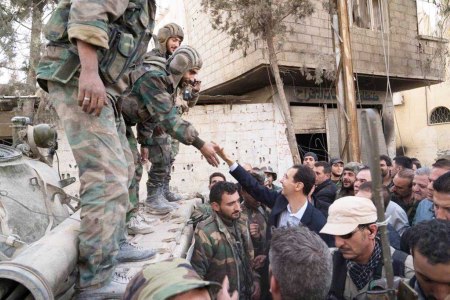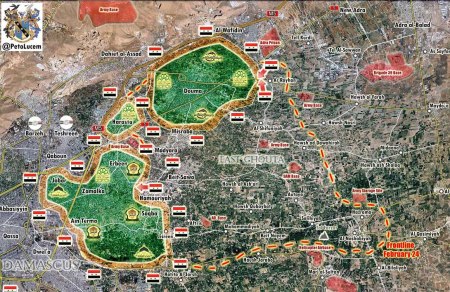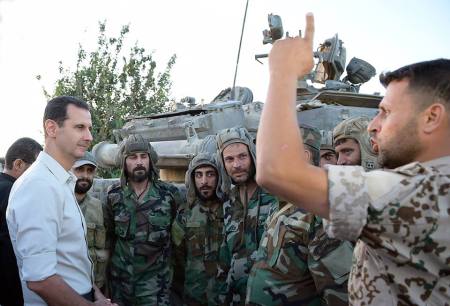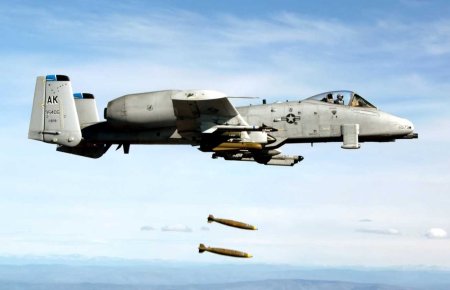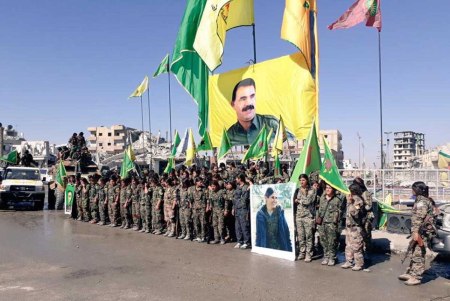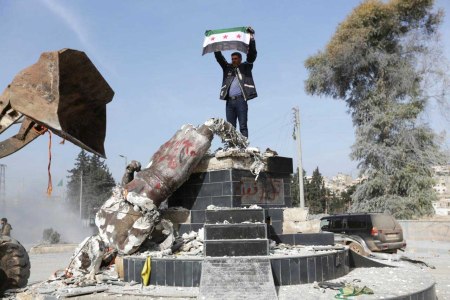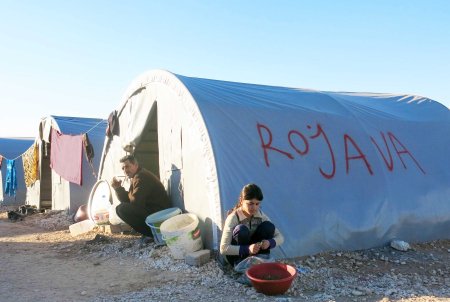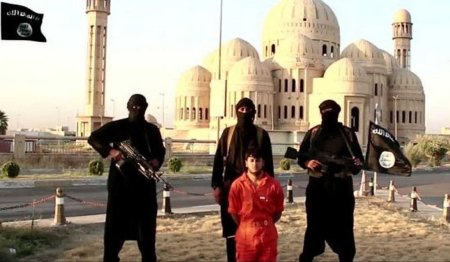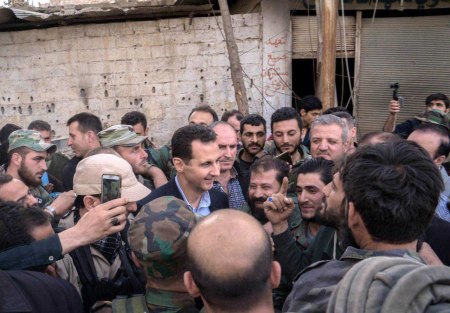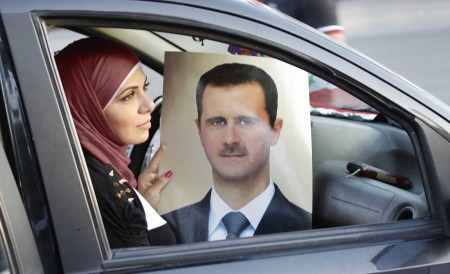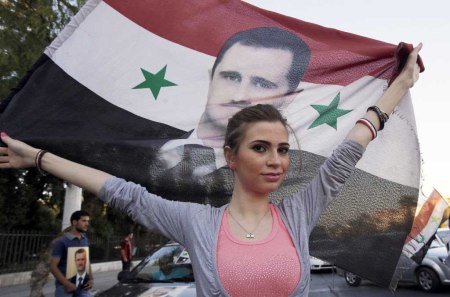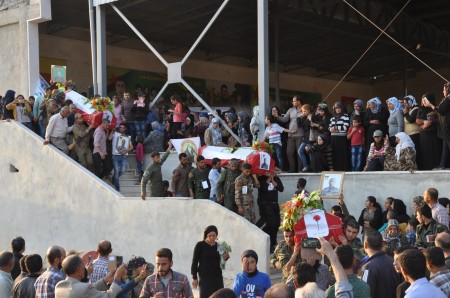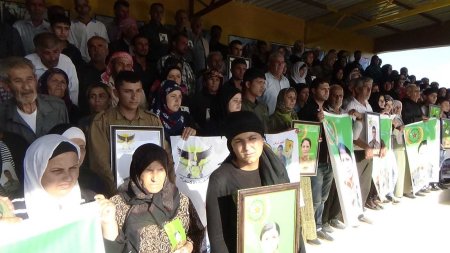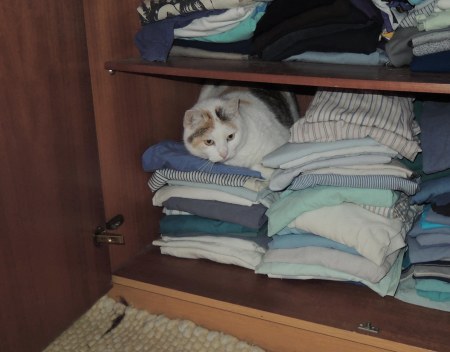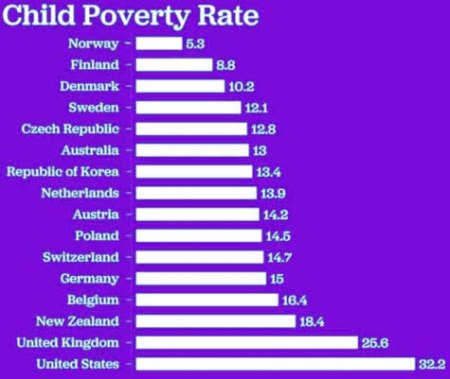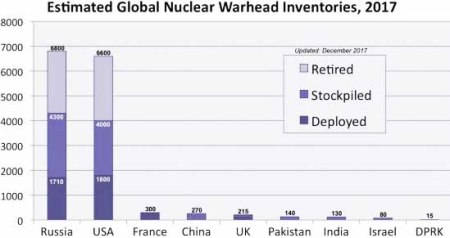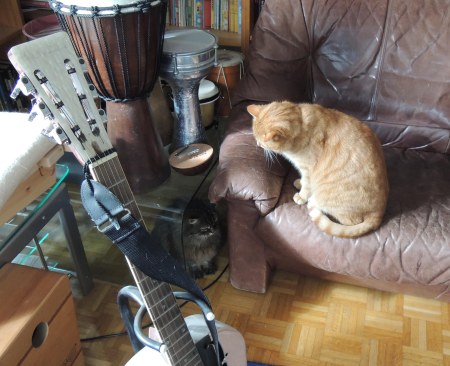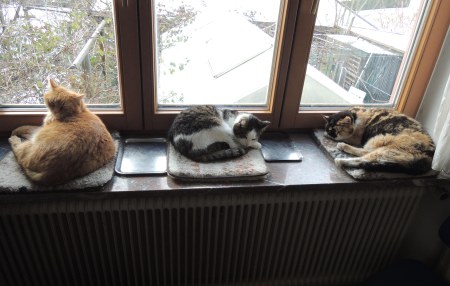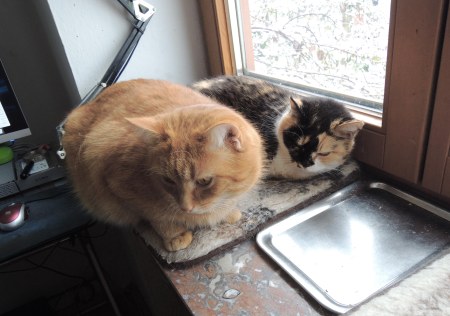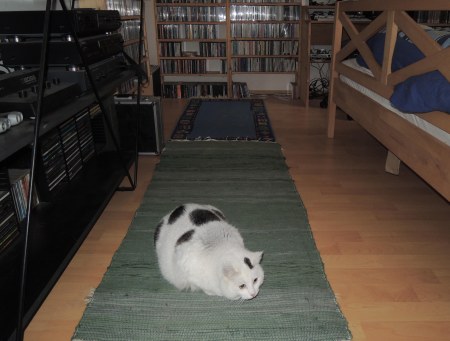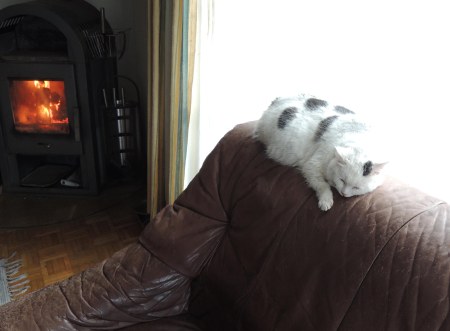Seven years, and still no end in sight. Contrary to hollow calls for deescalation, ceasefires, negotiations this conflict is deliberately kept going, as more weapons are sent in and more young men are recruited and trained to meet their fate as expendable cannon fodder. A whole generation in the Middle East has grown up in war, with nearly no education and training. They have no skills, no job, no hope, they cannot contribute anything positive to society. Tell them a few catchy slogans about Sunni supremacy and jihad, give them an AK-47 and explosives, they will gladly take the chance to be relevant, wield power, be respected or at least feared.
Eight UN Security Council members (USA, UK, France, Kuwait, Peru, Poland, Sweden, the Netherlands) demanded immediately decisive action in eastern Ghouta, and UN High Commissioner for Human Rights Zeid Ra’ad al-Hussein, a Jordanian prince, known for his Islamist leanings, said: “When you are capable of torturing and indiscriminately killing your own people, you have long forfeited your own credibility.”
Western nations on the Security Council organized an informal briefing by Zeid Ra’ad al-Hussein after a Russian-led protest blocked him from addressing a formal council meeting. Britain’s deputy UN ambassador Jonathan Allen said, that Russia “doesn’t want the truth of … the appalling human rights abuses taking place.”
The hypocrisy of Western charges and humanitarian pretensions is breathtaking, given the massive civilian casualties inflicted by the US bombing of Raqqa in Syria and Mosul in Iraq, where relentless air strikes and artillery bombardments inflicted tens of thousands of civilian casualties and reduced entire districts to rubble.
The USA has escalated its threats of a direct military attack on Syria and the Syrian government is reportedly taking measures to prepare for a military strike against the capital of Damascus.
Asharq al-Awsat, a newspaper controlled by Saudi Arabia, published a report citing Western diplomats, that Russian military personnel has been deployed at “critical locations” in Damascus in an attempt to deter airstrikes, and that the UN has moved some of its staff from areas it feared could be targeted.
The US threats have been taken deadly serious by Moscow. General Valery Gerasimov, chief of Russia’s general staff, warned that all threats to Russian troops in Syria would be answered with “retaliatory measures against any missiles and launchers involved in such an attack.”
Putin ordered to again increase Russian forces in Syria after last year saw a reduction.
Will that deter Western strategists, who think that WW III can be won?
Liberation of eastern Ghouta
The Islamist controlled Damascene suburb of eastern Ghouta has for years been utilized to launch mortar and rocket attacks on the Syrian capital, as well as to organize suicide bombings and other terrorist acts. This was one of the last strongholds of Western-backed insurgents, and after the Syrian army has made decisive advances it has become clear, that without military intervention the war will end in a few month with the total defeat of the radical Islamists.
In the past few days, between 60,000 and 80,000 civilians have streamed out of the enclave to the safety of government areas.
Syrian forces have recovered 84 percent of the enclave, dividing what remains into three isolated pockets, each of which is surrounded. The pockets are:
a. Douma, controlled by Jaysh al-Islam. This group is funded by Saudi Arabia, it won fame for locking women and children in cages and putting 100 cages containing about 7 captives each on rooftops as human shields against air raids. Its Chechen members are considered a threat to Russia.
b. Harasta, controlled by Ahrar al-Sham, which is supported by Turkey. Many Ahrar al-Sham militants are surrendering just as this is written.
c. Jobar, Zamalka, Erbeen, controlled by Failaq al Rahman and Hayat Tahrir al-Sham (al-Qaeda affiliate al-Nusra). Ain Terma has just been cut off, as the army controls Wadi Ain Terma.
b. Harasta, controlled by Ahrar al-Sham, which is supported by Turkey. Many Ahrar al-Sham militants are surrendering just as this is written.
c. Jobar, Zamalka, Erbeen, controlled by Failaq al Rahman and Hayat Tahrir al-Sham (al-Qaeda affiliate al-Nusra). Ain Terma has just been cut off, as the army controls Wadi Ain Terma.
Hayat Tahrir al-Sham is reported to prepare chemicals, which it wants to spray from roofs in residential areas to cause mass poisoning of civilians, hoping that the USA will then attack Damascus.
The fall of eastern Ghouta would be a milestone in the failure of the Western-backed insurgency and end all prospects to achieve a regime change by pressuring for the ouster of President Bashar al-Assad as part of an internationally brokered political settlement of the conflict.
This is what lies behind the renewed campaign over allegations of Syrian government forces committing chlorine gas attacks and other war crimes in the fight for eastern Ghouta. While Damascus, which carried out the complete destruction of its chemical weapons stockpiles under international supervision, has denied any such attack, leading figures in the Trump administration have issued direct threats of US military action, directed against Syria and its ally Russia.
President Donald Trump’s National Security Advisor, General H. R. McMaster, delivered a speech at the Holocaust Museum in Washington, DC, insisting, “All civilized nations must hold Iran and Russia accountable for their role in enabling atrocities and perpetuating human suffering in Syria.” McMaster added, “Assad should not have impunity for his crimes, and neither should his sponsors.”
Similarly, US ambassador to the UN Nikki Haley issued a warning to “the outlaw Syrian regime,” that Washington “remains prepared to act if we must.” Referring to last year’s US cruise missile attack on a Syrian airfield, she added: “It is not a path we prefer. But it is a path we have demonstrated we will take, and we are prepared to take again.”
All is not lost for the West, because IS (Islamic State) terrorists, holed up in a tiny pocket south of Damascus, miraculously have taken over the neighborhood of al-Qadam, which after week long negotiations was evacuated by Ajnad al-Sham, another Islamist group. IS fighters reportedly control the majority of the neighborhood. At least 60 Syrian soldiers have died, some have been captured and executions are said to have taken place in Al-Hajar al-Aswad.
US stealth invasion of Syria
The sentiment within the US military and intelligence apparatus for a military escalation against Syria and Russia found expression in a column published by the Washington Post headlined: “Will Trump try to stop Assad’s chemical weapons use?”
The column warns that “America’s credibility is on the line” and that “If nothing happens before eastern Ghouta falls, Haley and McMaster’s bluff will have been called. That spells disaster for upcoming diplomatic standoffs with Assad, Russia, and Iran in other parts of Syria.”
These standoffs are not merely diplomatic, as was made clear in February by a massive air attack against Syrian troops near strategic oil and gas fields in the eastern province of Deir ez-Zor, claiming the lives of a number of Russian military contractors. The US assault signaled Washington’s determination of carving out a US-controlled zone east of the Euphrates River along Syria’s borders with Turkey and Iraq. This area, covering 30 percent of Syria’s territory, is controlled by US troops along with their main proxy army, the so-called SDF (Syrian Democratic Forces), which consists largely of the Kurdish YPG/YPJ militia.
20 military bases have been set up from Kobane to al-Tanf, at least 4,000 US soldiers are stationed with artillery, long-range rocket launchers, and armored vehicles. Satellite images from October 2017 show a new large US army base in SDF-controlled Ash Shaddadi with eight helicopters and lots of equipment and weapons.
Right now an advanced military base is built in the al-Omar oilfield in Deir ez-Zor, and large amounts of arms and equipment, including missiles, military vehicles, and bridge segments are transported to the Koniko oilfield and the al-Omar oilfield.
The Kurds ushered them in, hoping for protection against IS and a stronger position in negotiations with the Syrian government about federalization or limited autonomy. They opened the door and the US military rushed in, increasing its presence quietly and steadily.
This is the deadly sin of the Kurds and this is the reason, why Russia did forsake them and didn’t deter Turkey from invading Afrin. It is sadly unjust, because Afrin had not much contact with Western powers, it was the least guilty part.
For Russia, it was not about justice, it was about throwing a wrench in US works.
The destroyed dream of Afrin
The conquest of Afrin by the Turkish military and its allied Islamist militias has ended another experiment of direct democracy.
While condemning and threatening military action against Syria and its allies, Washington’s reaction to the invasion of Afrin by Turkey has been decidedly muted, with the State Department merely issuing statements of “serious concern.”
Afrin’s direct democratic councils will be replaced by Islamic councils and Sharia courts, Kurds will be replaced by Arab refugees from camps in Turkey. This is at least the plan.
Turkish-backed Islamist forces are looting the town of Afrin. Trucks from Azaz enter the town empty and return packed with goods. Some Islamic groups spray-paint their names on shops and offices as a way of “reserving” them for future looting. Cars, trucks, machinery, agricultural equipment, tractors are taken and brought to Turkey or the Turkish occupied territory around Azaz, Jarabulus, al-Bab.
Bulent Kilic, a photographer of Agence France-Presse: “They are looting everything; goods, animals, goats, even pigeons.” There are various civilian complains about the looting on social media: “They took my phone out of my pocket yesterday,” and “they told me to get off and took my motorcycle.” Turkey reports that it starts arresting looters.
When the Islamists marched into Afrin town, they first destroyed the statue of Kawa the blacksmith, who is a Kurdish heroic figure for having led a revolt against a murderous king. The legend of Kava is an important part of Kurdish cultural identity, his name appears in many Kurdish songs and tales, where he represents hard work, rationality, freedom, emancipation from slavery, and uprising against oppression”
The story of Kawa:
Kawa the blacksmith lived in a city ruled by an evil king. The despot was ill and a doctor told him the only cure was to eat, twice a day, the fresh brains of two children. So the monarch carried out daily murders across the city until one day Kawa devised a plan. Working tirelessly at his furnace, he cast enough swords for an uprising. In the mountains outside the city, the blacksmith gathered all its youth and armed them with the weapons. After Kawa’s signal — by lighting a fire — they attacked the evil king’s palace and burnt it down.
Turkish President Recep Tayyip Erdogan gloated over the fall of Afrin city, declaring that Kurdish fighters had “fled with their tails between their legs.” Speaking to an audience of judges and prosecutors in Ankara on Sunday, Erdogan said that while the capture of Afrin was an important stage of the Turkish operation in Syria, “We will continue this process until we have entirely abolished the corridor through Manbij, Ayn al-Arab [Kobane], Tel-Abyad, Ras al-Ayn and Qamishli.”
He will have to sort that out with the US soldiers which are stationed in the mentioned towns.
Afrin city has been abandoned not only by the Kurdish YPG/YPJ militia, but as well by its civilian population, which feared atrocities at the hands of the Turkish military and its allied Islamist militias. Many militia members are former Islamic State fighters who simply changed sides and the badges on their uniforms during Turkeys Euphrates Shield offensive.
Turkey downplays civilian casualties of the air war, refugee numbers, or the prospect of systematic ethnic cleansing, but about 260 civilians have died, some 300,000 people are displaced, and Kurds fear that they will be permanently driven from their homes and replaced with families of Islamic fighters and Syrian Sunni Arab refugees living in Turkey.
For the time being most of the refugees stay in camps in government controlled areas south of Afrin.
Turkey’s offensive against Afrin is expensive and the occupation of northern Syrian land will continue to drain the resources of the country. In January, the Turkish deficit was 7.1 billion US$, which would mean an annual deficit of 50 billion US$.
US rating agency Moody has downgrading Turkey’s credit rating to Ba2 from Ba1 (both are considered “junk” status) and the Turkish lira dropped to a record low against Euro and Dollar. It will be difficult and costly for Turkey, to borrow money on the international financial markets or attract foreign investors.
Relations between Ankara and Washington are tense, they have been tense for a long time. US pastor Andrew Brunson, behind bars in Turkey since October 2016 on terrorism-related charges, faces up to 35 years in jail. President Recep Tayyip Erdogan wants to use Brunson as a bargaining chip in the extradition request of Islamic cleric Fethullah Gulen, accused of masterminding the coup attempt in July 2016. Brunson was allegedly involved in Gulen’s project on interfaith dialogue.
Will Putin be able to tame Erdogan and set him up against the USA? Or will Erdogan back-stab Russia again and play the NATO card? Will the Kurds be able to defend Kobane and Jazira or will they lose everything in the end? In this war everyone tricks and cheats everyone.
Islamic State resurgence
The IS terror group is not gone yet. Beside the reappearance in the Damascene neighborhood of al-Qadam it exists undisturbed in two desert areas east and west of the Euphrates River. The USA has stopped all actions against IS.
There are IS sleeper cells in both Iraq and Syria, just waiting for a chance to attack and kill. These are psychopaths, mentally sick persons. It is no wonder, that after decades of war people lose their mind.
Operation Desert Strom was launched in 1991, Operation Iraqi Freedom in 2003. The Syrian conflict started in 2011. Many young people have not seen anything in their lives than war, destruction, and death — it should be no surprise, that they feel contempt, anger, and hate, that they are unstable, deranged, impulsive, and violent.
Various reports say, that US helicopters repeatedly evacuated Islamic State commanders from villages in northern Syria. Other reports suggest, that US personal trained Islamists in the use of chemical weapons, mainly with the aim to stage “false flag” attacks which then could be used as pretense for military intervention.
This could all be counter propaganda but nobody can say for sure, after Iraq’s WMDs (weapons of mass destruction), the Gulf of Tonkin incident, Gaddafi’s alleged mass rapes, the Maidan sniper massacre, and similar deceptive maneuvers even the boldest assumptions don’t seem unreasonable anymore.
After they cheated and deceived so many times, why should they suddenly have become honest players?
Why do they hate Bashar?
The glory of Dr. Bashar al-Assad — I cannot word it in a more provocative way. The most defamed and slandered person in the Western world is a nice and sensible man, a loving husband and father, a wise and just leader of his people, deeply respected and admired by most Syrians.
Dr. Bashar al-Assad made an unannounced visit to eastern Ghouta, driving there in his private Honda Accord. He was filmed during this visit, as he spoke with soldiers and refugees. Watch yourself and compare his appearance with that of Trump, May, Macron, Merkel. You will understand why they all hate him.
https://www.youtube.com/watch?v=iddVznl26WE
https://www.youtube.com/watch?v=AjXgGLDOBbU
https://www.youtube.com/watch?v=MoC9dxOZ0Ro
https://www.youtube.com/watch?v=W4-9_CBYars
https://www.youtube.com/watch?v=js2egmp_Yxk
https://www.youtube.com/watch?v=xGteykWRH-4&feature=youtu.be
https://www.youtube.com/watch?v=AjXgGLDOBbU
https://www.youtube.com/watch?v=MoC9dxOZ0Ro
https://www.youtube.com/watch?v=W4-9_CBYars
https://www.youtube.com/watch?v=js2egmp_Yxk
https://www.youtube.com/watch?v=xGteykWRH-4&feature=youtu.be
What Syrians living in Damascus tell about him on social media:
“I’ve heard he likes making surprise and lone visits like this without any huge escort convoy. I know he probably has hidden security, but this nevertheless seems very risky especially given that Syria is having a civil war and he’s just a couple kilometers from the front lines.”
“He did his duty in the army as an army doctor after graduating from university in Damascus, then continued with post graduate studies in London to become an eye doctor, before getting called back to Syria to become the president because his brother, heir apparent, died in a car crash.”
“He always had low-key cars. His personal car of choice before the war was an Audi A6. The presidential garage does have armored luxury cars, but those are used only in official occasions when necessary, they are used ceremonially. Many people don’t know this, but the Presidential Palace isn’t his actual residence, he hasn’t lived there a day in his life. It’s only used for ceremonial events, and for hosting dignitaries.”
“My father has been to the people’s palace, during one of said ceremonies. The Assad’s don’t live there, they just use it. That is by choice, they find it too large. As for the Tishreen Palace, the president lived there for a period of 4 years, while his home in Malki was being renovated. (My friend’s father supplied the mosaic for both the People’s Palace and for their personal home in Malki). After that he moved to his current home, which I will not disclose.”
“Last year I saw him in a marketplace walking around, looking at food, talking to people and laughing. I was looking for security guys but I saw none, not even in the background.”
“One thing that struck me about him was that I heard multiple anecdotes of people saying they’ve seen him on the street or met him personally. I remember watching a BBC documentary on Syrian schools where Asma al-Assad visited a school. I also read a story about Assad inviting his professor in London to Syria where he personally drove him around Damascus and went with him to a restaurant.”
It is really hard to demonize and vilify such a person, which explains the non-stop desperate, sometimes comical, but most times disgusting and nauseating efforts by Western media, to depict him as a bloodthirsty tyrant.
Syrians know it better, Bashar is their inspiration, their hope, the symbol of their national identity, and the guarantor, that they will survive this ordeal and the nightmare of this war will end one day.
